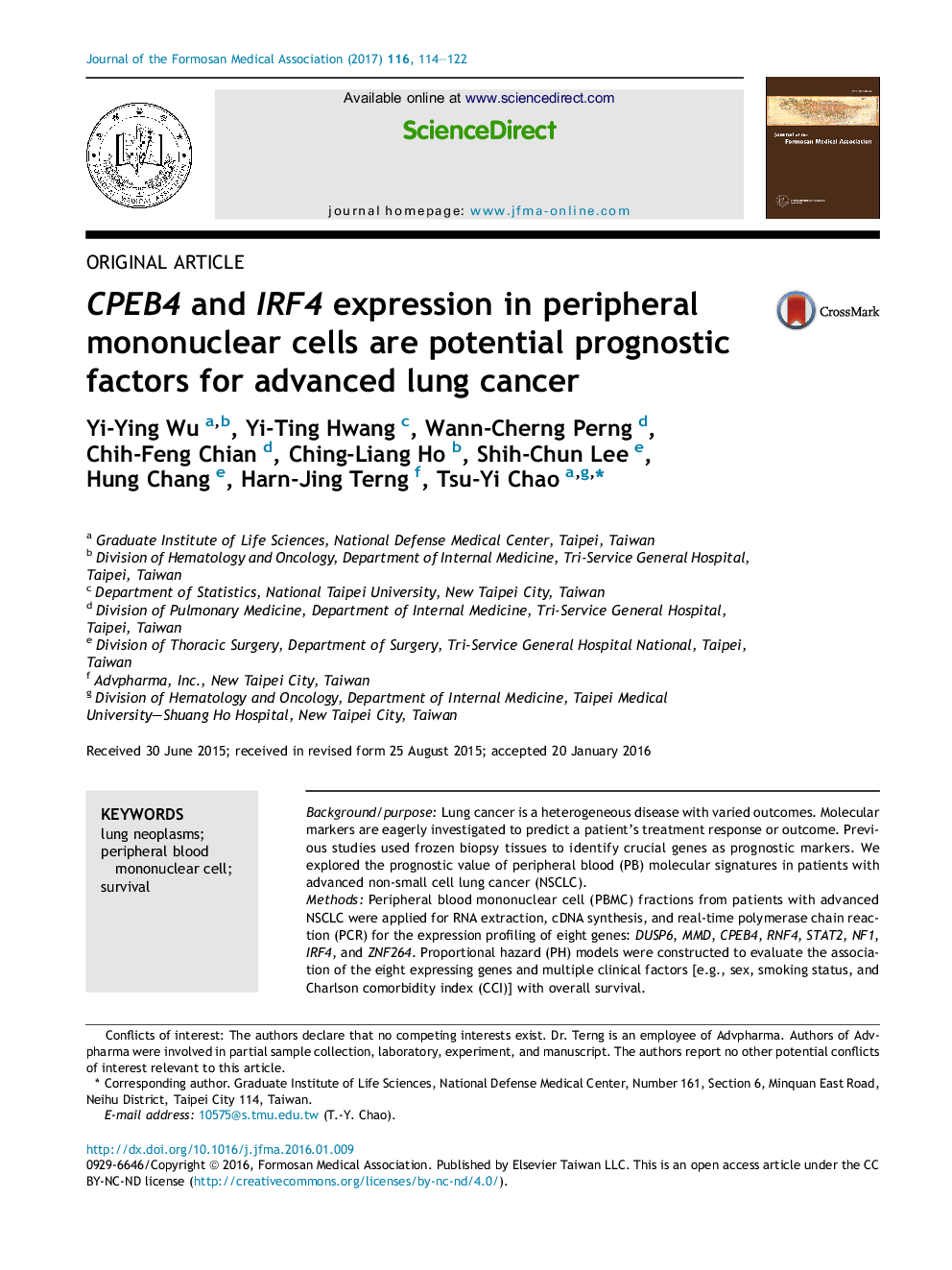| کد مقاله | کد نشریه | سال انتشار | مقاله انگلیسی | نسخه تمام متن |
|---|---|---|---|---|
| 5680052 | 1408687 | 2017 | 9 صفحه PDF | دانلود رایگان |

Background/purposeLung cancer is a heterogeneous disease with varied outcomes. Molecular markers are eagerly investigated to predict a patient's treatment response or outcome. Previous studies used frozen biopsy tissues to identify crucial genes as prognostic markers. We explored the prognostic value of peripheral blood (PB) molecular signatures in patients with advanced non-small cell lung cancer (NSCLC).MethodsPeripheral blood mononuclear cell (PBMC) fractions from patients with advanced NSCLC were applied for RNA extraction, cDNA synthesis, and real-time polymerase chain reaction (PCR) for the expression profiling of eight genes: DUSP6, MMD, CPEB4, RNF4, STAT2, NF1, IRF4, and ZNF264. Proportional hazard (PH) models were constructed to evaluate the association of the eight expressing genes and multiple clinical factors [e.g., sex, smoking status, and Charlson comorbidity index (CCI)] with overall survival.ResultsOne hundred and forty-one patients with advanced NSCLC were enrolled. They included 109 (77.30%) patients with adenocarcinoma, 12 (8.51%) patients with squamous cell carcinoma, and 20 (14.18%) patients with other pathological lung cancer types. A PH model containing two significant survival-associated genes, CPEB4 and IRF4, could help in predicting the overall survival of patients with advanced stage NSCLC [hazard ratio (HR) = 0.48, p < 0.0001). Adding multiple clinical factors further improved the prediction power of prognosis (HR = 0.33; p < 0.0001).ConclusionMolecular signatures in PB can stratify the prognosis in patients with advanced NSCLC. Further prospective, interventional clinical trials should be performed to test if gene profiling also predicts resistance to chemotherapy.
Journal: Journal of the Formosan Medical Association - Volume 116, Issue 2, February 2017, Pages 114-122